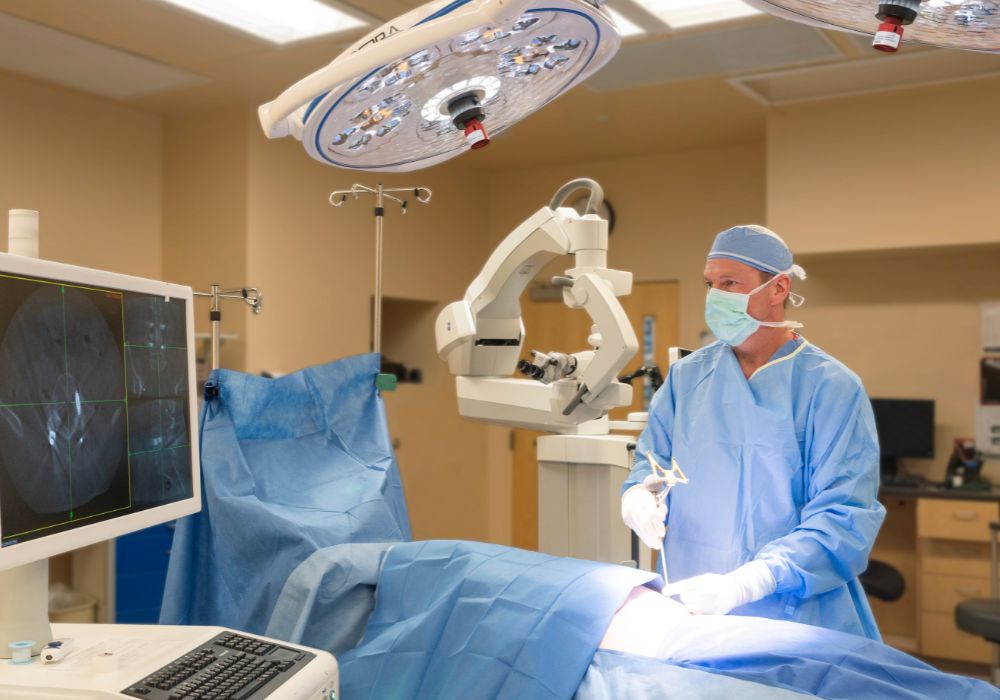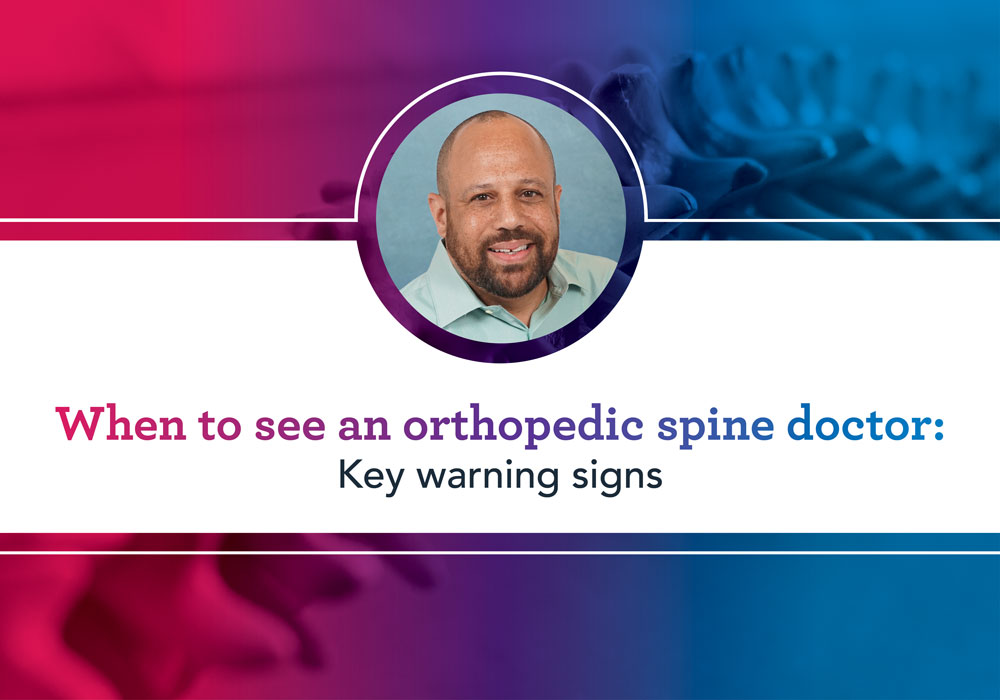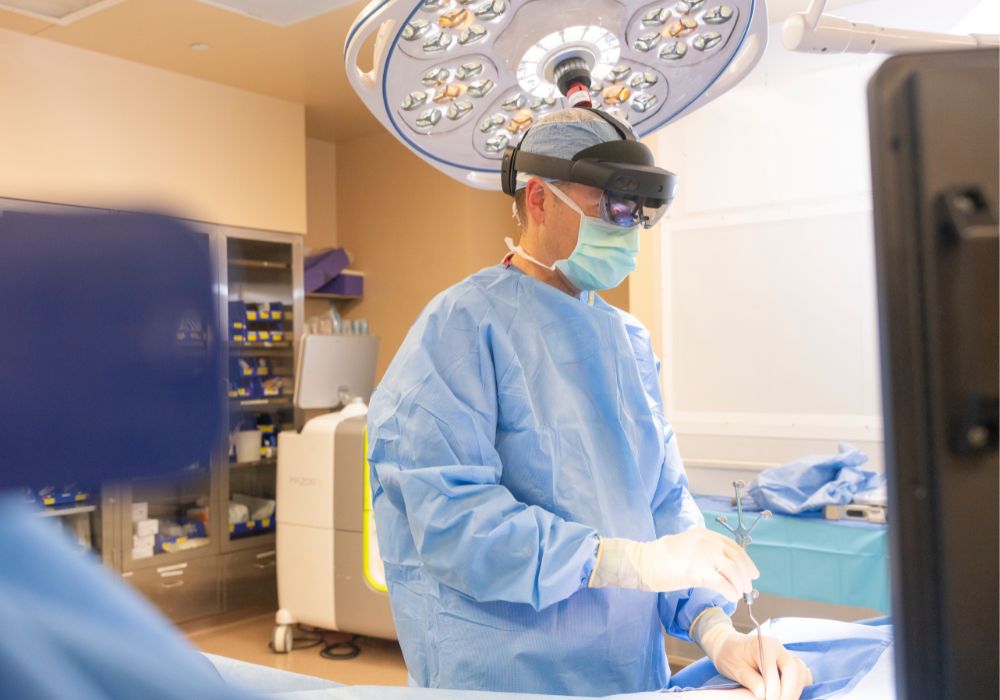If you experience sudden pain in your lower back that also radiates to the back of your thigh and into your leg, you may have sciatica.
This condition occurs when you have a protruding (herniated) disk in your spinal column pressing on the nerve roots in the lumbar spine.
Read on to learn about the common symptoms and causes of back pain from sciatica, and discover treatment options that can provide the relief you need.
Anatomy
The spine is made up of 24 bones, called vertebrae, which are stacked on top of one another. These bones connect to protect the spinal cord. The seven small vertebrae that begin at the base of the skull and form the neck comprise the cervical spine.
Your spinal cord and nerves travel through the spinal canal carrying messages between your brain and muscles. The intervertebral discs between your vertebrae are flexible, flat, and round discs and are about a half-inch thick.
These discs act as shock absorbers when you walk or run and allow motion between the vertebrae.
What causes sciatica?
Sciatica is most commonly caused by a herniated disc, resulting from simple wear and tear due to aging. It is common in patients between 30 and 50 years old.
When a disc herniates, the gel-like center of the disc protrudes into or through the disc’s outer lining. This herniated disc will sometimes press directly on the nerve roots that become the sciatic nerve.
Sciatica symptoms
Symptoms from sciatica will most often last no longer than six weeks. Some common sciatica pain symptoms include:
- Pain that feels similar to a bad leg cramp
- Pain that is sharp
- Pain that heightens when you move, sneeze or cough
- Weakness, numbness or a tingling sensation down your leg
Sciatica during pregnancy
Many pregnant women experience sciatica pain. The frequency of this pain during pregnancy increases as the pregnancy progresses and is most common in the third trimester.
Sciatica during pregnancy is due to the increasing amounts of the hormone Relaxin in a pregnant mother’s system that causes the ligaments to loosen in preparation for childbirth.
Although sciatica and pregnancy can go hand-in-hand, there are several home remedies to try that might help you avoid this painful condition.
Some of these remedies include:
- Avoiding heavy lifting
- Gaining weight slowly
- Doing pregnancy stretches
- Trying prenatal yoga
- Getting a massage
- Staying active
- Avoiding standing for long periods
Physician examination
To determine if you have sciatica, your physician will ask you for a complete medical history, have you describe your symptoms, and conduct a physical exam. An X-ray or MRI is usually necessary to confirm the diagnosis.
Make an appointment with an Orthoindy spine specialist
Treatment options
In most cases, sciatica will heal on its own with rest and time. If symptoms persist, nonsurgical treatment options are explored first.
Nonsurgical sciatica treatments include:
- Non-steroidal anti-inflammatory drugs (e.g., ibuprofen, aspirin or muscle relaxants)
- Heat or cold on your aching muscles
- Physical therapy, exercises and stretches for sciatica
- Cortisone injections
Surgical treatment
If a patient does not feel relief after a long period and nonsurgical treatments do not relieve symptoms, back surgery for sciatica may be necessary.
During surgery for sciatica, which is called a laminotomy with discectomy, a spine surgeon may remove the herniated disc to stop it from pressing on your nerve.
The surgery is performed under local, spinal or general anesthesia, which may successfully relieve or reduce sciatica pain.

Recovery
Motion, exercise, and stretching are essential to strengthen your back. Most times, patients can resume normal lifestyle activities reasonably quickly.
Learn more about treatment options for neck and back pain at OrthoIndy.
Schedule an appointment
Your well-being is important to us. If you’re suffering from sciatica pain, schedule online or call us to set up an appointment with one of our orthopedic specialists.
Learn more about the conditions that could be causing you pain, like degenerative disc disease and sciatica, and find out if treatments like spine surgery for sciatica are right for you.
If your injury or condition is recent, you can walk right into one of our OrthoIndy Urgent Care locations for immediate care. No referral is necessary to see one of our physical therapists for rehabilitation or physical therapy.





